You should clean your dog’s ears once every 1–2 weeks, depending on their breed, ear type, activity level, and overall ear health. Dogs with floppy ears, allergies, or who swim frequently may need more frequent cleanings.
Why Cleaning Your Dog’s Ears Is Crucial for Their Health
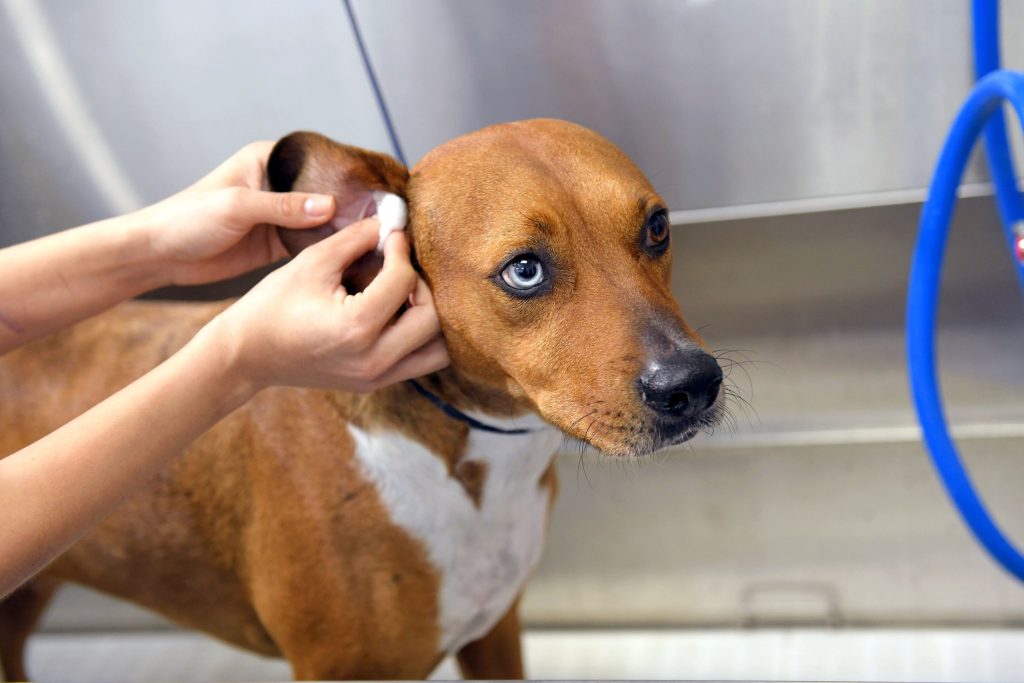
Just like brushing teeth or clipping nails, ear cleaning is a part of essential pet care that often gets overlooked.
Without regular ear maintenance, dogs can suffer from painful infections, wax buildup, or even long-term hearing issues.
Here’s why it matters:
- Dogs’ ear canals are L-shaped, which means debris and moisture can get trapped easily.
- Moisture buildup and wax are ideal breeding grounds for bacteria and yeast.
- Floppy ears (like those on Cocker Spaniels or Basset Hounds) reduce airflow, increasing the chance of infections.
- Neglecting ear care can lead to chronic issues, expensive vet visits, and discomfort for your pet.
Maintaining clean ears is more than hygiene—it’s preventive care. At Careers Collectiv, we stress the importance of understanding basic pet health not only for pet owners but also for professionals seeking careers in animal care.
How Often Should You Clean Your Dog’s Ears?
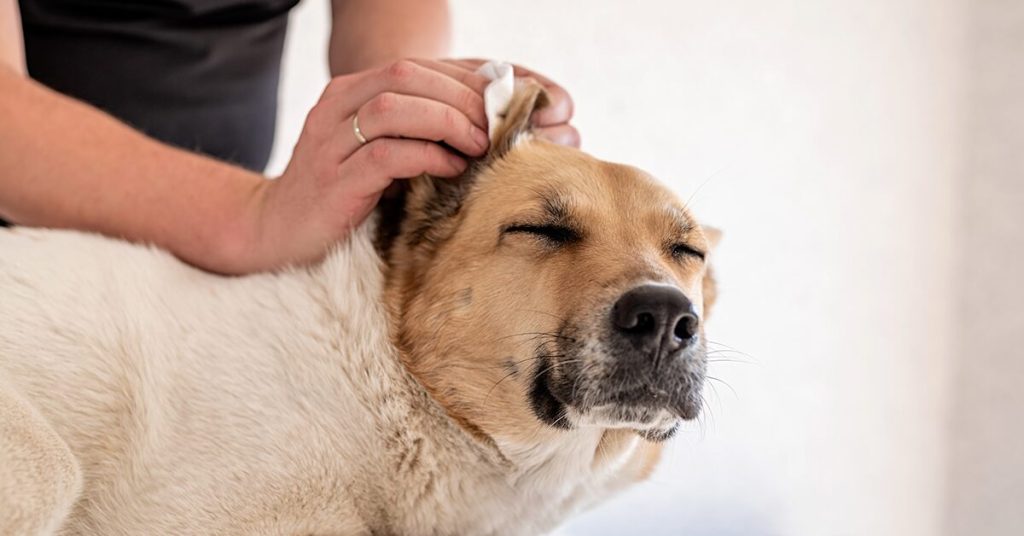
Most dogs need ear cleaning every 1 to 2 weeks—but this isn’t a one-size-fits-all rule.
Here’s a more detailed breakdown:
- Dogs with healthy ears and no history of issues:
- Clean once a month as basic maintenance.
- Clean once a month as basic maintenance.
- Dogs with floppy ears or long hair around the ear canal:
- Clean every 7 to 14 days to prevent moisture buildup.
- Clean every 7 to 14 days to prevent moisture buildup.
- Dogs who swim often or live in humid climates:
- Clean weekly or after each swim session.
- Clean weekly or after each swim session.
- Dogs with allergies or past infections:
- Follow veterinarian advice, which may suggest every few days during flare-ups.
- Follow veterinarian advice, which may suggest every few days during flare-ups.
- Low-maintenance breeds (short-haired, erect ears, low activity):
- A monthly cleaning is typically enough.
- A monthly cleaning is typically enough.
Always dry your dog’s ears thoroughly after bathing or swimming. Moisture trapped in the ears is a common trigger for infections.
Signs Your Dog’s Ears Need Cleaning
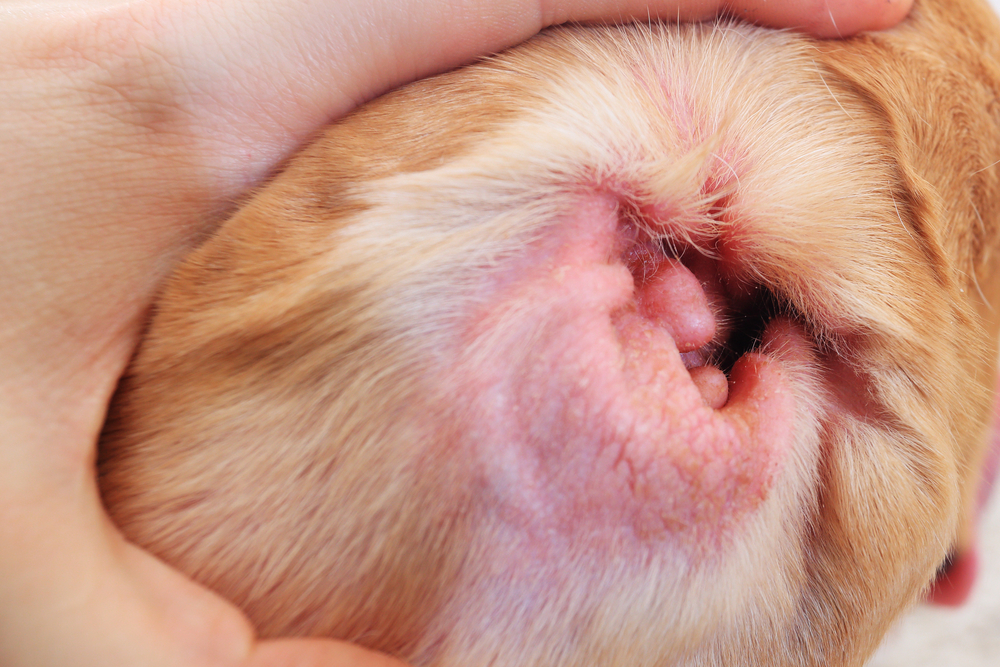
Recognising the early signs of dirty or irritated ears can help you prevent bigger problems.
Look out for:
- Persistent scratching at the ears
- Head shaking or tilting
- Redness or swelling inside the ear flap
- Dark, waxy, or yellowish discharge
- Foul odor from the ears
- Visible dirt or debris near the ear canal
If you notice these symptoms, it’s time for a cleaning—or in some cases, a vet visit.
Step-by-Step Guide to Cleaning Your Dog’s Ears at Home
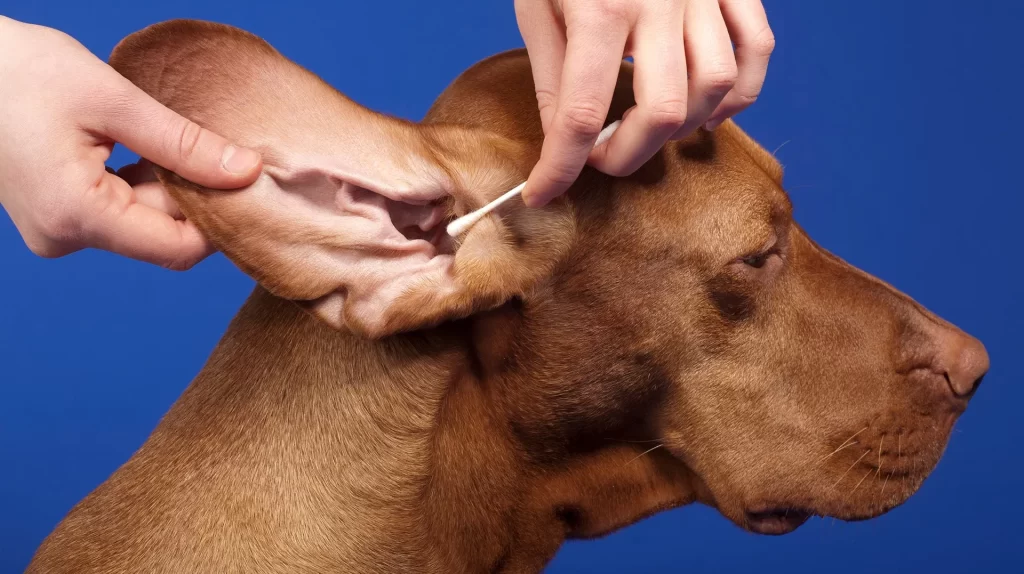
You don’t need to be a groomer to safely clean your dog’s ears at home.
Follow this simple process:
What you’ll need:
- Vet-recommended ear cleaning solution
- Cotton balls or gauze pads
- Towel
- Treats for reward
How to clean:
- Hold your dog still in a quiet, calm space.
- Gently lift the ear flap and inspect for redness, swelling, or foul odor.
- Pour the cleaning solution into the ear canal (follow the bottle instructions).
- Massage the base of the ear for 20–30 seconds to loosen debris.
- Let your dog shake their head (yes, it’ll get messy!).
- Use a cotton ball or gauze to wipe out any remaining solution and dirt.
- Never insert cotton swabs deep into the ear—they can damage the canal.
Pro Tips:
- Use only vet-approved products.
- Clean one ear at a time.
If your dog resists heavily, stop and consult a groomer or vet. Want to build confidence in handling routine pet care tasks like this? It helps to learn animal welfare so you understand not just how—but why—these steps matter.
Are You Cleaning Too Much? Here’s How to Tell
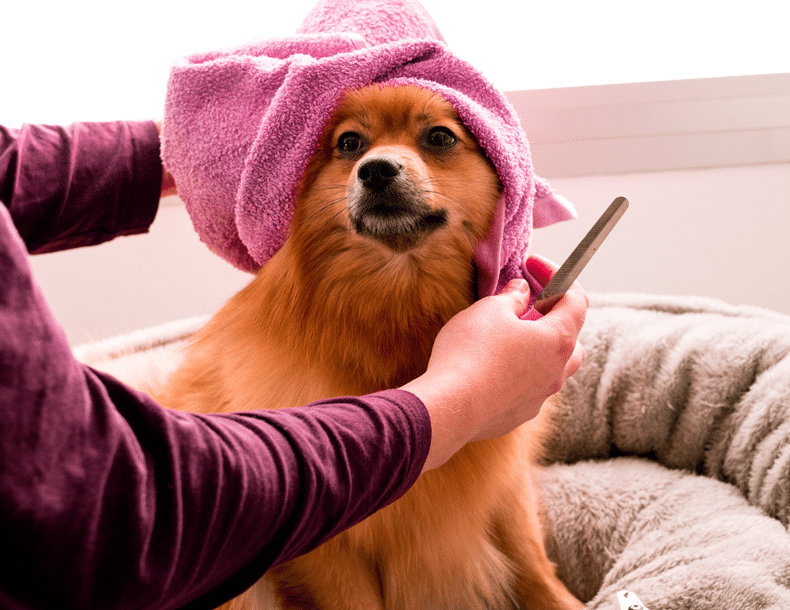
Believe it or not, overcleaning can do more harm than good.
Excessive cleaning can:
- Irritate the ear canal
- Strip natural protective oils
- Trigger inflammation, making ears more prone to infection
If your dog’s ears are already clean and not showing any signs of irritation, skip the cleaning for that week.
Signs of overcleaning:
- Dry or flaky skin in the ear
- Excessive head shaking post-cleaning
- Redness without wax or dirt present
Moderation is key. A clean ear is a healthy ear, not a constantly scrubbed one.
When It’s Time to See a Vet

Sometimes, cleaning at home isn’t enough—and in some cases, it can make things worse.
Consult a vet if:
- You notice bleeding, pus, or intense swelling
- Your dog is in visible pain during ear handling
- Symptoms persist even after cleaning
- You suspect ear mites (black debris, strong odor, excessive scratching)
Professional ear cleaning is also recommended for dogs with chronic infections, or as a routine part of a grooming session.
Careers Collectiv encourages pet owners and pet care professionals to never self-diagnose infections. Timely veterinary attention prevents complications.
Best Ear Cleaning Products for Dogs
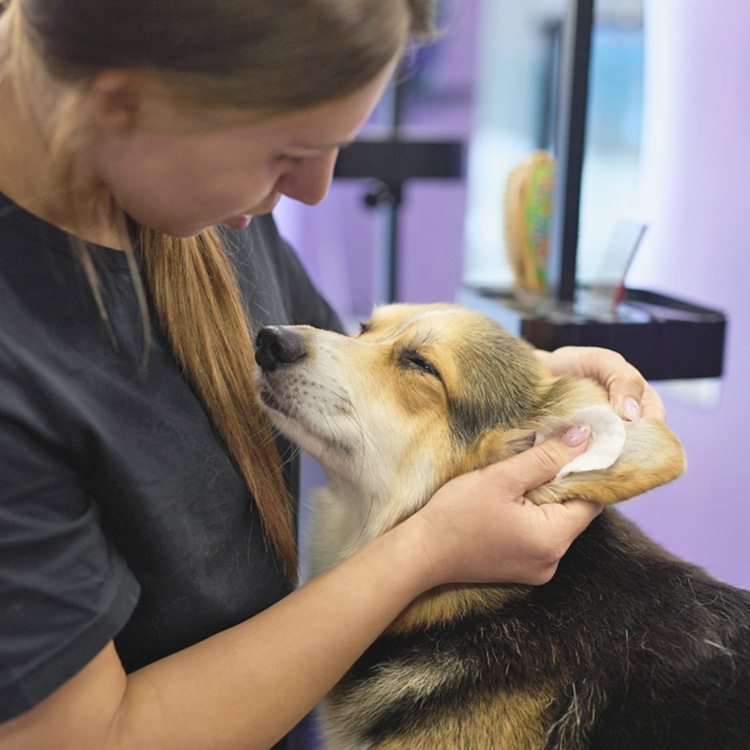
Not all ear cleaners are created equal. Choosing the right one depends on your dog’s needs.
Here are top product types and when to use them:
- Vet-approved liquid ear cleaners
Great for deep cleaning and odor control
Examples: Epi-Otic, PAW Gentle Ear Cleaner - Natural dog ear cleaners
Use if your dog has allergies or sensitive skin
Examples: Apple cider vinegar (diluted), aloe-based solutions - Dog ear wipes
Best for surface-level cleaning between full cleanings
Ideal for: Quick cleanups or for dogs that hate liquids
Look for these features:
- Alcohol-free to prevent stinging
- pH-balanced to match your dog’s skin
- Antibacterial or antifungal properties for dogs prone to infection
FAQs About Dog Ear Cleaning
Can I use baby wipes to clean my dog’s ears?
No. Baby wipes are not pH-balanced for dogs and may contain fragrances that irritate the ear canal.
How do I know if my dog has an ear infection?
Watch for symptoms like redness, swelling, strong odor, discharge, and excessive scratching.
Can I clean my dog’s ears with hydrogen peroxide?
Avoid it. Hydrogen peroxide can irritate healthy ear tissue and delay healing.
What happens if I don’t clean my dog’s ears?
Ignoring ear hygiene can lead to infections, hearing loss, and long-term discomfort for your dog.
Is professional cleaning better than DIY?
For routine care, DIY is fine. But if you’re unsure or dealing with frequent issues, professional cleaning is safer and more thorough.